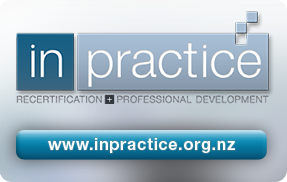Primary care plays a key role in the management of
ADHD
Assisting patients and their families to reach decisions on management options
Although specialist services will recommend management options, parents often want to discuss these with their GP especially when management includes long-term medication for a child.
Stimulant medication superior to alternative treatments
There is considerable evidence that monotherapy with carefully managed drug regimens of stimulant medication, methylphenidate or dexamphetamine, is superior to alternative treatments such as behavioural therapy.
Seventy to eighty percent of children with ADHD on stimulant medication have improvement of their symptoms. This improvement is mainly in increased attention span and reduced intensity of disruptive and impulsive behaviour. Unfortunately evidence for shortterm improvement in academic ability is mixed and good studies of long-term benefits are lacking.
Many of the side effects associated with stimulant medications are relatively mild and short lived and generally respond to dosing or timing adjustments.
There appears to be no long-term or severe adverse effects associated with stimulant medications but there are few studies on this. However, recently the cardiovascular effects of stimulants have come under close scrutiny.2 It is important to enquire for any past or family history of unexplained fainting or cardiovascular problems and to carry out a cardiovascular review of the child before prescribing. If there is any positive history or findings, an ECG and cardiology review is recommended.
Parents are often aware that stimulant medications can be abused as recreational drugs. They may be concerned that using them could lead to their child’s involvement in the drug scene later in life. However there is evidence that adolescents with ADHD, who continue with their stimulant medications are less likely to be involved in alcohol or drug abuse than other adolescents with ADHD who don’t continue with stimulants.
Behaviour therapy less effective and more difficult
Behaviour therapy for ADHD is less effective and more difficult, labour intensive and expensive than pharmacotherapy. However it is effective for some of the common comorbid conditions associated with ADHD, such as oppositional defiant disorder, and many families will wish to try it as a first option.
Combining behaviour therapy with pharmacotherapy does not appear to improve outcomes compared to pharmacotherapy alone. There are however some simple behavioural interventions, which are likely to help patients and their families with day-to-day living. These include, for example, regular daily schedules, good organisation of personal belongings, consistent rules, clear communication and praise and rewards for appropriate behaviour.
Families and patients with ADHD often need psychosocial support and a number of options are available, such as special education services, disability support, carer support and ADHD support groups.
Alternative medications are used in some situations
Specialists may prescribe a number of alternative medications, such as tricyclic antidepressants, clonidine and risperidone for people with ADHD. This usually occurs when patients have failed to respond to stimulant medication, have unacceptable side effects from them or have comorbidities, for which an alternative may be a better option.
Atomoxetine has recently become available for the treatment of ADHD in New Zealand but is not currently funded. It is a selective noradrenaline reuptake inhibitor. A recent review of the evidence was not able to differentiate between atomoxetine and stimulant medication in terms of effectiveness.3 Atomoxetine has a potential for severe liver injury although this appears to be very rare and has been linked to possible increased risk of suicide ideation in children and adolescents. It is not currently sought by drug users to any extent.
| Page 1 | 2 | 3 | 4 | 5 | 6 | 7 | 8 | 9 | Page 3 |

